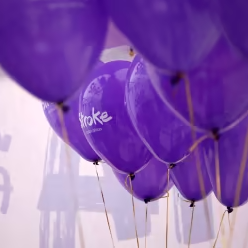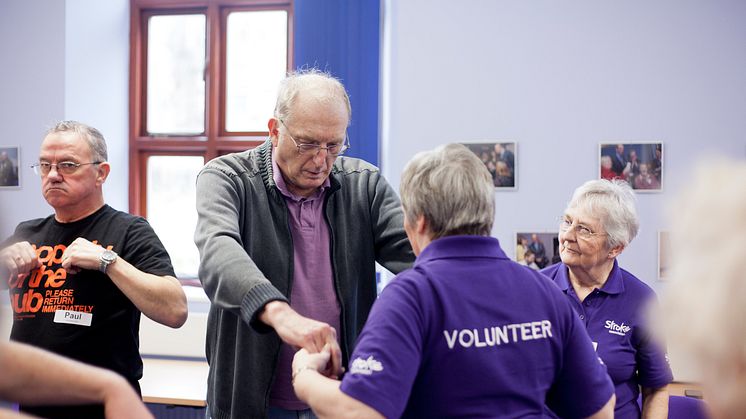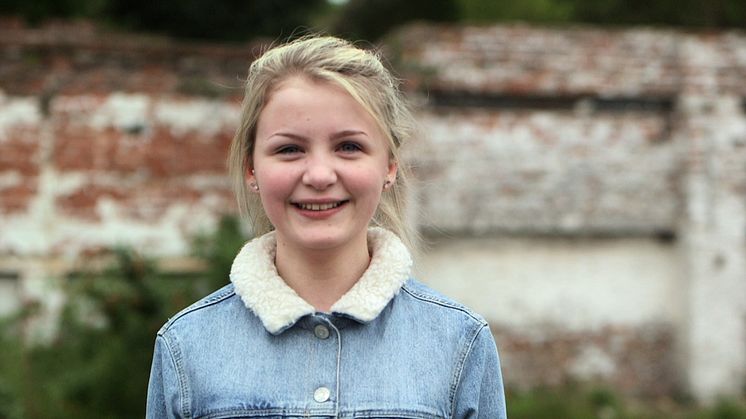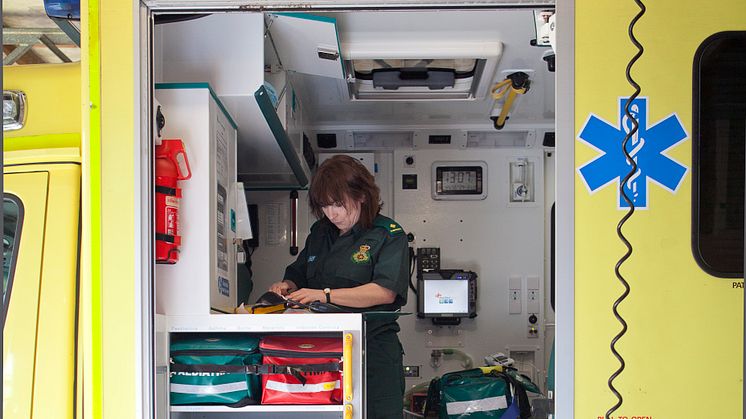
Press release -
Stroke survivors ‘abandoned’ after treatment
Almost half (45%) of stroke survivors in England feel abandoned when they leave hospital, according to new figures published today (Tuesday 17 May) by the Stroke Association.1
The charity surveyed over 1,100 stroke survivors living in the UK about their experience of stroke care and support. The findings also reveal that:
- Over a third (39%) of stroke survivors in England reported that they left hospital without a care plan, returning home without appropriate support in place for their recovery.
- Almost half (47%) of stroke survivors in England said they were not contacted by a healthcare professional when they returned home from hospital.
- Over a third (39%) of stroke survivors in England stated that they did not receive a vital six-month assessment of their health and social care needs.3 These assessments monitor how well stroke survivors are recovering and identify additional, tailored support that may be needed to prevent unnecessary readmissions to hospital and care homes.
Jon Barrick, chief executive at the Stroke Association, said: “These findings are deeply concerning. Currently, too many stroke survivors feel abandoned when they return home as they are not given the right support to begin their rehabilitation. Major strides have been made in the way stroke is treated in hospital; however the same is not true when stroke survivors return home. No one plans for a stroke, but the Government can, and should, ensure that the right care and support is there when people need it most.”
The survey found that stroke survivors in England do not have access to the therapy and support they need to cope with the physical, mental and emotional impact of stroke:
- More than a quarter (27%) of all survivors with a physical disability rated the therapy they received at home for physical disabilities as either very poor or poor, highlighting problems with the amount of support they were given.
- Almost half (49%) of all survivors with memory problems said access to support for this was very poor or poor.
- Almost half (49%) of all survivors with depression or low mood as a result of their condition said the support they received for this was very poor or poor.
The charity is launching a major new campaign, A New Era for Stroke, which calls on the Government to commit to a new stroke strategy. The current 10 year National Stroke Strategy for England ends in 2017, and the charity is warning that stroke survivors’ recovery will continue to be put at serious risk unless the Government commits to a new strategy.
Jon Barrick continues: “Stroke survivors have told us that they have had to wait weeks – and in some cases months – for the support and therapy they need to rebuild their lives. For too many people, their support comes too late, it stops too soon, or they don’t have access to all types of therapy they need.
“We successfully campaigned for the first strategy ten years ago which has led to dramatic improvements in the way stroke is treated in hospital. However this has not carried through to the support that people need once they return home. The Government has said they don’t have plans to renew the stroke strategy, yet over 78% of stroke survivors have said a national plan is needed. That’s why we’re urging people to sign our petition calling on the Government to bring in a new era for stroke.”
The National Stroke Strategy for England was introduced to improve standards in treatment and support for people affected by stroke. As part of its campaign, the Stroke Association is launching a public petition, calling on the Government to commit to a new stroke strategy.
Professor Helen Rodgers,President of the British Association of Stroke Physicians, said: “There have been major improvements in the care provided by specialist in-patient stroke services to patients with acute stroke and TIA (transient ischaemic attack or mini-stroke) since the introduction of the National Stroke Strategy for England in 2007 and similar strategies in the devolved nations of the UK. Unfortunately, there has been little progress to meet the on-going needs of stroke patients and their families following discharge from hospital. The British Association of Stroke Physicians strongly supports the Stroke Association’s call for a new comprehensive national stroke programme to develop specialist stroke services across the whole care pathway to improve life after stroke.”
Professor Karen Middleton, chief executive of the Chartered Society of Physiotherapy, said: “This survey paints a worrying picture of inadequate care planning and services for stroke survivors. It is neither cost effective nor clinically effective to provide life-saving treatment but not life-enhancing rehabilitation afterwards. Ensuring stroke survivors have speedy and sufficient access to physiotherapy is an essential part of their recovery: enabling people to regain independence and take an active role in their community, family and workplace.
“We are very pleased to back the Stroke Association’s call for a new stroke strategy so that survivors receive the best possible support from hospital to home.”
To sign the Stroke Association’s petition for a new stroke strategy, visit: www.stroke.org.uk/newera
Ends
For further information, case studies, interviews and images please contact the Stroke Association’s media team on 020 7566 1500 or email press@stroke.org.uk
Notes to editors
- A New Era for Stroke, conducted by The Stroke Association in March 2016. 1,174 stroke survivors in England, Scotland, Wales and Northern Ireland responded to the survey.
- Launched in 2007, the National Stroke Strategy provided national leadership and ring-fenced funding for stroke. A key part of the strategy was the creation of specialist stroke units (Hyper Acute Stroke Units) in hospitals, where stroke experts, such as consultants, nurses, physiotherapists and speech and language therapists were brought together. Targets were set for the rapid assessment and treatment of stroke patients.
- The National Stroke Strategy states that stroke survivors should receive an assessment at six weeks of leaving hospital, again at six months and then annually. Although our survey found that 39% of stroke survivors told us they received a review, the Sentinel Stroke National Audit Programme (SSNAP) clinical audit found that between October – December 2015 only 26% of stroke survivors received a six month review, and the SSNAP post-acute audit found that there are a number of areas – mainly in England – where six month reviews are not being performed at all.
- A stroke is a brain attack which happens when the blood supply to the brain is cut off, caused by a clot or bleeding in the brain. There are around 152,000 strokes in the UK every year and it is the leading cause of complex disability. There are around 1.2 million people in the UK living with the effects of stroke.
- Stroke Association is the UK’s leading charity supporting people affected by stroke. We believe in life after stroke and together we can conquer stroke. We work directly with stroke survivors and their families and carers, with health and social care professionals and with scientists and researchers. We campaign to improve stroke care and support people to make the best recovery they can. We fund research to develop new treatments and ways of preventing stroke. The Stroke Helpline (0303 303 3100) provides information and support on stroke. More information can found at www.stroke.org.uk
Topics
Categories
Regions
A stroke is a brain attack which happens when the blood supply to the brain is cut off, caused by a clot or bleeding in the brain. There are around 152,000 strokes in the UK every year and it is the leading cause of severe adult disability. There are over 1.2 million people in the UK living with the effects of stroke.
Stroke Association is a charity. We believe in life after stroke and together we can conquer stroke. We work directly with stroke survivors and their families and carers, with health and social care professionals and with scientists and researchers. We campaign to improve stroke care and support people to make the best recovery they can. We fund research to develop new treatments and ways of preventing stroke. The Stroke Helpline (0303 303 3100) provides information and support on stroke. More information can be found at www.stroke.org.uk














